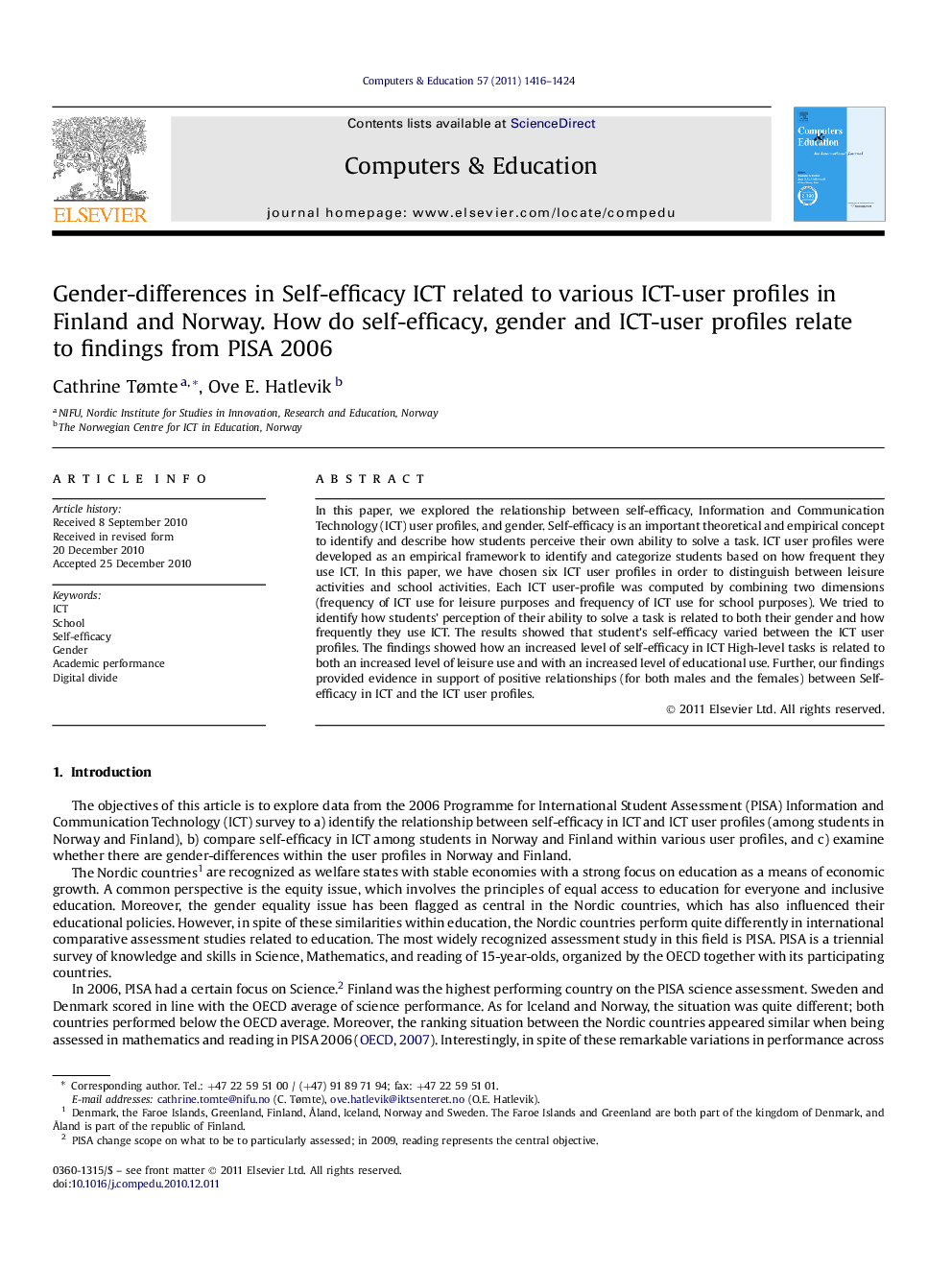| Article ID | Journal | Published Year | Pages | File Type |
|---|---|---|---|---|
| 348957 | Computers & Education | 2011 | 9 Pages |
In this paper, we explored the relationship between self-efficacy, Information and Communication Technology (ICT) user profiles, and gender. Self-efficacy is an important theoretical and empirical concept to identify and describe how students perceive their own ability to solve a task. ICT user profiles were developed as an empirical framework to identify and categorize students based on how frequent they use ICT. In this paper, we have chosen six ICT user profiles in order to distinguish between leisure activities and school activities. Each ICT user-profile was computed by combining two dimensions (frequency of ICT use for leisure purposes and frequency of ICT use for school purposes). We tried to identify how students’ perception of their ability to solve a task is related to both their gender and how frequently they use ICT. The results showed that student’s self-efficacy varied between the ICT user profiles. The findings showed how an increased level of self-efficacy in ICT High-level tasks is related to both an increased level of leisure use and with an increased level of educational use. Further, our findings provided evidence in support of positive relationships (for both males and the females) between Self-efficacy in ICT and the ICT user profiles.
